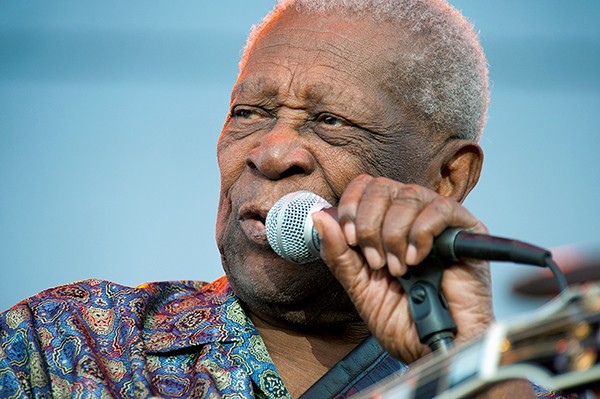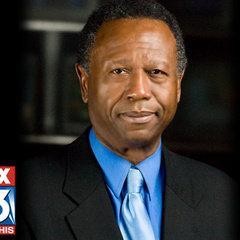
It’s Saturday morning and Memphis has the blues.
The rain is coming down, slow and persistent from a low gray sky. It soaks the grass, fills the gutters, and falls hard on the flowers left on the Beale Street sidewalk outside of B.B. King’s club.
The King of Blues left us on Friday, gone after 89 years, one of the last living links to a long-ago Memphis — the era of WDIA and the old pre-tourist Beale Street — an era we’ll never see the likes of again.
And on that same Friday, just a block away on the now-booming Beale Street, our beloved Memphis Grizzlies were eliminated from the NBA playoffs. Grit ‘n Grind came up short against the flashy, splashy hotshots from the Golden State.
It’s Saturday morning and Memphis has the blues. A double shot.
I’d spent that Friday on a 12-hour drive back from a vacation in Western Pennsylvania. I listened to the radio all day, and on almost every show — from NPR to sports-talk radio — B.B. King was discussed and eulogized. His music was everywhere; past interviews were replayed. His humanity and humility came through as clear as one of his signature guitar lines. He spoke as he played — with elegance, dignity, and perfect timing. He was seen, without question, as a national treasure. And he belongs to Memphis.
Now, Mayor Wharton is suggesting that we honor B.B. King by naming a street after him. This is a great idea, and certainly not unprecedented. One of our major thoroughfares is named after Danny Thomas, who founded the world’s greatest children’s hospital, St. Jude. Another is named after Elvis Presley, the king of rock-and-roll. B.B. King deserves no less.
The mayor has suggested Third Street, which runs through the east side of downtown before trickling into a hodge-podge of less-than-stellar retail mini-malls and decaying urban sprawl, before it hits the I-240 loop south of town. I think we can do better for the King of the Blues.
We should rename Riverside Drive for B.B. King. It’s one of our most beautiful and iconic streets. Coming from the South, from the bluff, you get a wonderful view of the Mighty Mississippi and Tom Lee Park below, and the M-Bridge in the distance. It runs along the riverfront, past the boats and the harbor and the cobblestones, where cotton from the fields was once loaded and unloaded — and where the blues were born. It’s the best way to enter the city, the way I drive all my first-time-in-Memphis visitors from the airport.
I’d like to see a statue of B.B. King in Ashburn-Coppock Park, just before the street that would bear his name descends to the river, a river named for the state where King was born.
Lots of cities have a Riverside Drive. If Memphis is going to have a B.B. King Boulevard, let’s do it up right. We’re Memphis and we can have the blues every day.
And in this case, that would be a very good thing.
 Randy Miramontez | Dreamstime.com
Randy Miramontez | Dreamstime.com 